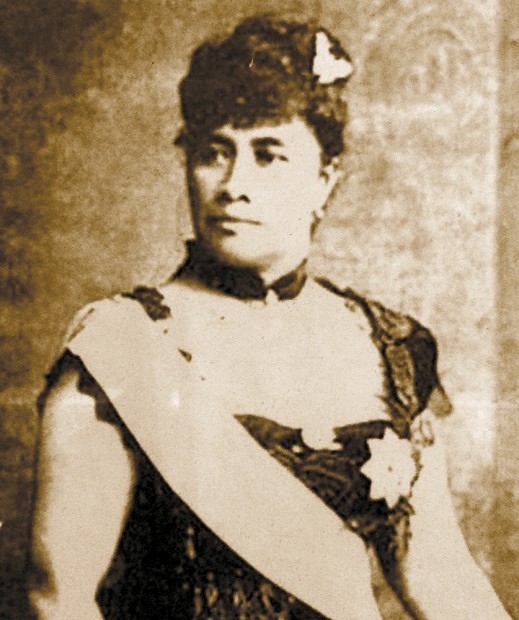LIHU‘E — Hawai‘i’s last monarch never relinquished the throne, remaining the islands’ queen until her death, more than 20 years after the “illegal overthrown of the Kingdom of Hawai‘i,” as stated in a formal apology issued by the Congress in 1993.
A group of 12 state senators introduced Senate Bill 2268, which proposes a slight modification on Queen Lydia Lili‘uokalani’s statue on the grounds of the state Capitol in Honolulu.
The statue currently bears the years of Lili‘uokalani’s coronation and the overthrow of the Hawaiian Kingdom, and under the measure it would instead bear the dates of Lili‘uokalani’s coronation and her death. The reasoning behind it is that despite the overthrown, she remained the queen until the day she died.
“Queen Lili‘uokalani’s kingdom was overthrown with the aid of the United States military, and she was imprisoned in her own palace. Despite the political turmoil and personal distress that marked the queen’s reign, Queen Lili‘uokalani never relinquished her sovereignty and remained the monarch of the Hawaiian Kingdom until her death,” Hawaiian Affairs Committee Chair Sen. Brickwood Galuteria, D-Waikiki, Chinatown, states in the committee report sent to Senate President Sen. Shan Tsutsui, D-Wailuku, Pa‘ia.
The bill passed the committee unamended on Jan. 30. On Feb. 8 it passed second reading, and on Thursday it passed the Senate Ways and Means Committee, again unamended.
“The memorial statue of Queen Lili‘uokalani on the grounds of the state Capitol is a symbol and a tribute to the Hawaiian Kingdom,” states SB 2268, adding that the inscription on the statue should be befit the queen’s greatness.
“The purpose of this act is to honor the dignity and memory of Queen Lili‘uokalani as the reigning Queen of the Hawaiian Kingdom until her death,” states the bill. The proposal would erase the overthrown date, Jan. 17, 1893, and add the date Lili‘uokalani’s death, Nov. 11, 1917.
The majority of submitted testimony supports the bill, including testimony from the Office of Hawaiian Affairs, the State Foundation on Culture and the Arts, the Association of Hawaiian Civic Clubs and others.
Only one testimony, from O‘ahu’s Kenneth Conklin, opposed to the bill, arguing that the change would give the impression that Lili‘uokalani reigned from 1891 to 1917.
“The whole purpose of such an inscription is to twist history by leading people to believe the monarchy was never overthrown,” states Conklin, author of the 2007 book “Hawaiian Apartheid: Racial Separatism and Ethnic Nationalism in the Aloha State.”
Conklin warns in his book of the dangers of Hawaiian sovereignty movements, threatening the unity of the nation.
The Congress, in its 1993 formal apology to Native Hawaiians for United States role in the overthrow of the Hawaiian Kingdom, acknowledges Native Hawaiians never directly relinquished to the United States their claims to their inherent sovereignty as a people over their national lands, either through a treaty of annexation or through a plebiscite or referendum, states SB 2268.
“The Legislature finds that Hawaiian sovereignty remains unrelinquished today,” states the bill.
Visit www.capitol.hawaii.gov for more information.
• Léo Azambuja, staff writer, can be reached at 245-3681 (ext. 252) or lazambuja@ thegardenisland.com.





